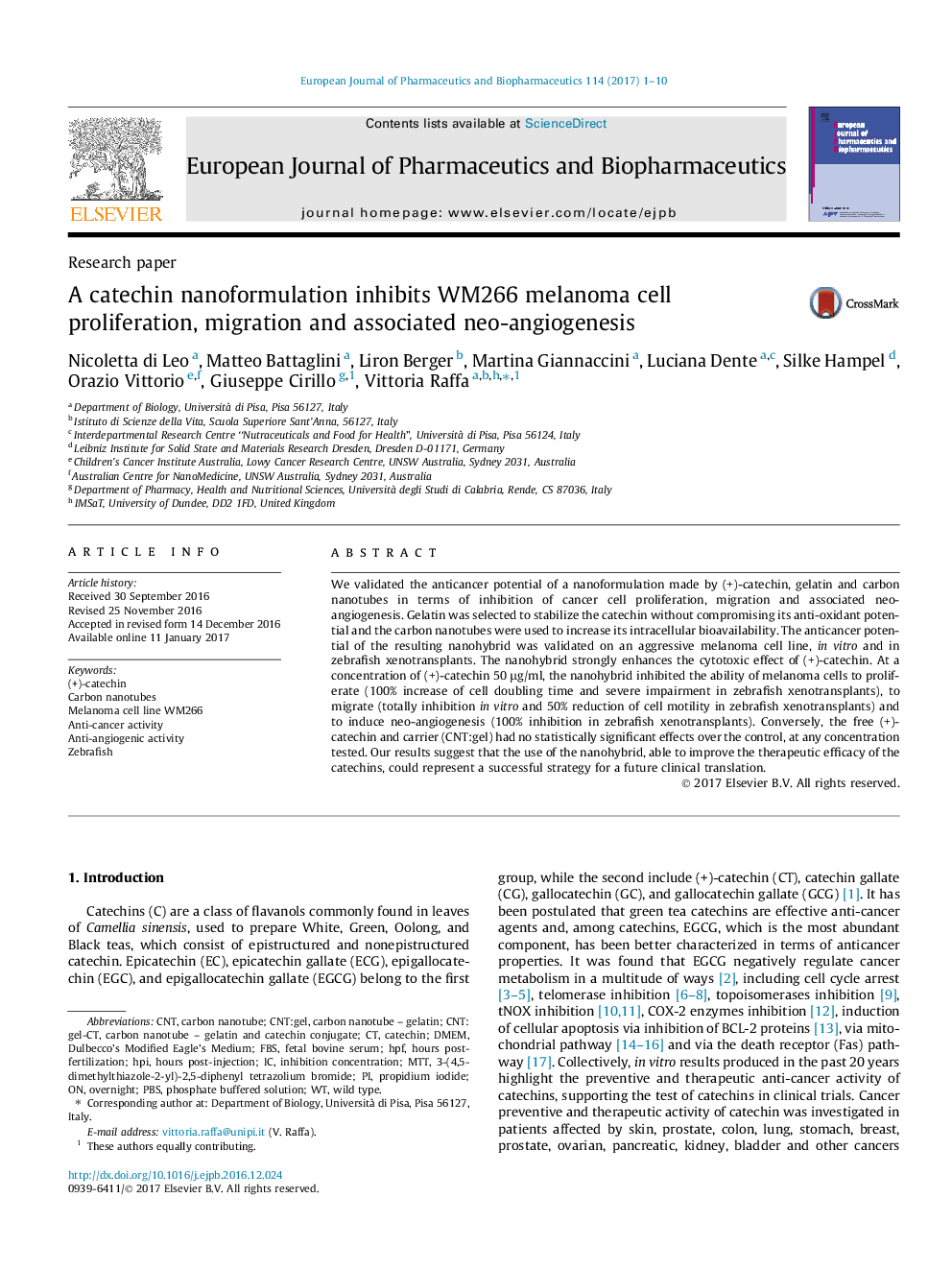| Article ID | Journal | Published Year | Pages | File Type |
|---|---|---|---|---|
| 5521437 | European Journal of Pharmaceutics and Biopharmaceutics | 2017 | 10 Pages |
We validated the anticancer potential of a nanoformulation made by (+)-catechin, gelatin and carbon nanotubes in terms of inhibition of cancer cell proliferation, migration and associated neo-angiogenesis. Gelatin was selected to stabilize the catechin without compromising its anti-oxidant potential and the carbon nanotubes were used to increase its intracellular bioavailability. The anticancer potential of the resulting nanohybrid was validated on an aggressive melanoma cell line, in vitro and in zebrafish xenotransplants. The nanohybrid strongly enhances the cytotoxic effect of (+)-catechin. At a concentration of (+)-catechin 50 μg/ml, the nanohybrid inhibited the ability of melanoma cells to proliferate (100% increase of cell doubling time and severe impairment in zebrafish xenotransplants), to migrate (totally inhibition in vitro and 50% reduction of cell motility in zebrafish xenotransplants) and to induce neo-angiogenesis (100% inhibition in zebrafish xenotransplants). Conversely, the free (+)-catechin and carrier (CNT:gel) had no statistically significant effects over the control, at any concentration tested. Our results suggest that the use of the nanohybrid, able to improve the therapeutic efficacy of the catechins, could represent a successful strategy for a future clinical translation.
Graphical abstractDownload high-res image (185KB)Download full-size image
